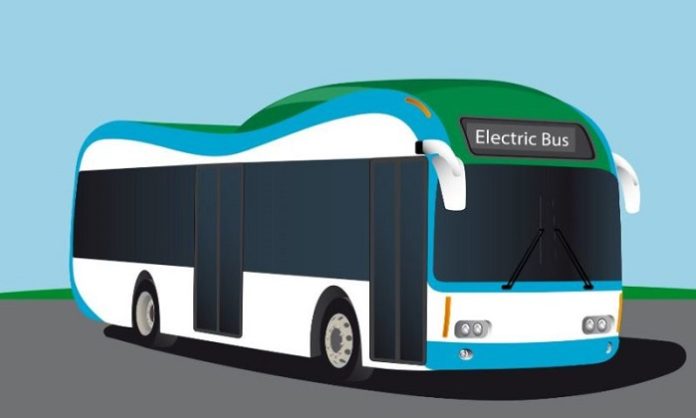In a couple of years, Mumbai will likely boast of two electric buses for every km of road—the largest fleet in the country with around 4,000 e-buses in the BEST undertaking.
This will be almost double the electric fleet in other bus corporations in Delhi, Kolkata, Chennai or Bengaluru.
BEST has also resolved to go “100% green” by early 2023 by phasing out all diesel vehicles: 23% of buses running on diesel will be converted to green fuel while 66% will continue on CNG for some time before being eventually replaced with e-buses, said general manager Lokesh Chandra. The undertaking is targeting 6.5 million tonnes of CO2 reduction by switching to 10,000 e-buses by 2027.
BEST will also integrate renewable energy into its infrastructure to ensure buses run on fuel generated by solar or wind. “By increasing the e-bus fleet, we plan to cater to a record 50 lakh daily commuters who will get comfortable, noiseless rides with zero emissions and at an affordable fare of Rs 6 for a 5 km journey,” said Chandra. At present, the daily ridership is around 31 lakh.
Experts said such an ambitious plan to expand the fleet of electric vehicles (EVs) will hinge on charging infrastructure. BEST officials said they have floated tenders for 55 charging stations across Mumbai with 660 charging points to ensure 24×7 facilities. The government too has targeted 1,500 EV charging stations across the Mumbai region in a couple of years, with the first lot of 134 expected soon. It has invited an expression of interest for a 12-year lease to set up charging stations in Mumbai, both for public transport and private car owners.
Power will be available to all at a concessional rate of Rs 5.50 per unit, an official said. The rate will be reduced further by around a rupee per unit during late night hours. “There is a minimum requirement of 100 sq meters of land on open space to set up a charging station. The new EV charging stations could be outside big housing societies having drive-through access to main roads, cinema complexes, shopping malls, wedding halls, recreational activity places and restaurants and all such public gathering places where vehicles are parked in sizeable numbers,” he said.
Charging stations will also come up at all 29 BMC public parking lots in Mumbai. Almost 300-350 EV charging stations have been installed so far in Mumbai and Maharashtra over the past one year through strategic tie-ups with vendors. This includes 70 in Mumbai and 30 in Navi Mumbai.
Kaustubh Gosavi, consultant (sustainable cities and transport) from WRI India, said with maximum public transport switching to electric, it would encourage more private vehicle owners to adopt EVs.
He added : “Because of huge orders BEST had placed recently — for 2,100 single deckers and 900 double deckers — it is the first transport body to get a very low rate when it comes to per km lease rent. This created a ripple effect across the country and now, eight STUs (State Transport Undertakings) across India are procuring 3,000 e-buses at extremely low rates just like BEST.”
Transport activist A V Shenoy from Mumbai Mobility Forum said there was huge demand for the red buses lately, especially the present fleet of 386 e-buses, which are running packed. “With 2,000 to 4,000 more e-buses arriving on roads, the BEST should also conduct a survey on which routes the buses should ply based on demand from commuters,” he suggested.
Experts said maintenance and fuel costs were low in e-buses and the entire technology was far advanced ensuring safe travel and “zero hazard”. The next lot of 750 e-buses, including 225 e-double deckers with a huge carrying capacity of 90 passengers in each bus, is expected to hit roads by December, sources said. In two years, Mumbai will have at least 73% more fleet of e buses than any other Metro city. A nationwide comparison showed that in the next two years, Delhi will have 2,300 e-buses, Bengaluru 1,890, Chennai 2,000 and Kolkata 2,120.








